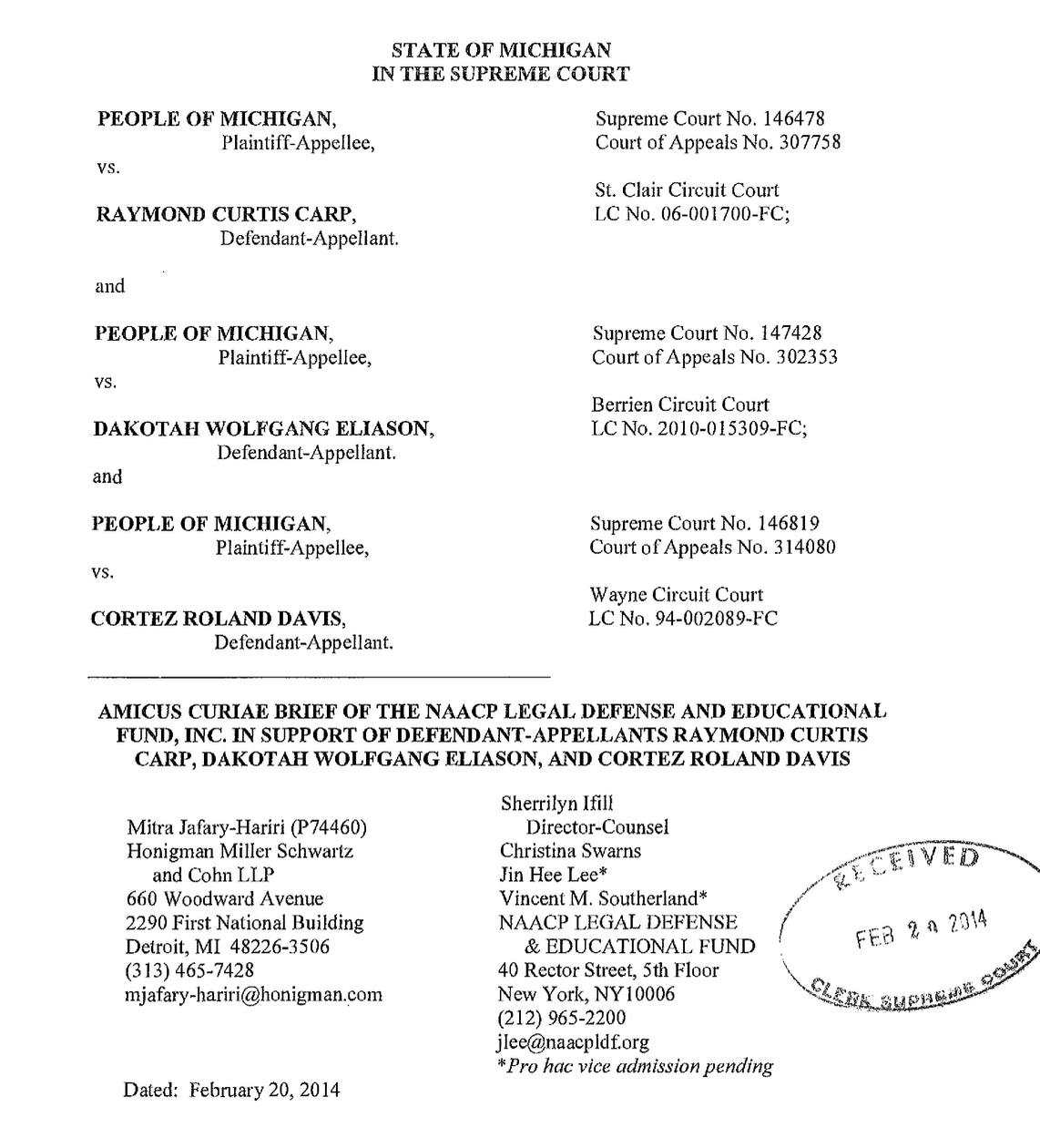
Summary of Argument
In a series of recent decisions, the United States Supreme Court firmly established thatchildren are less culpable than adults and that youth have distinctive attributes, which should be considered when imposing a punishment as severe as life without parole. Thus, in Graham v. Florida, 560 U.S. 48 (2010), the Supreme Court barred juvenile life without parole sentences for nonhomicide offenses. Two years later, the Supreme Court, in Miller v. Alabama and Jackson v. Hobbs (Miller/Jackson), 132 S. Ct. 2455, 2463 (2012), prohibited mandatory life without parolesentences for children. At the heart of these landmark decisions is the Eighth Amendment principle of "proportionate punishment" and the recognition that children have diminished culpability by virtue of their child status.
The evaluation of a child's culpability has, however, been marred by racial stereotypes and underlying fears of youth violence. From the late-1980s through the mid-1990s, the "super- predator myth" crystallized unfounded perceptions of youth of color as uniquely depraved and violent, beyond rehabilitation or redemption. Despite the fallacy of these stereotypes, theresultant fear of so-called "super-predators" fueled the passage of extreme juvenile sentencing laws that ignored the unique characteristics of youth and, instead, drove children into the adult criminal justice system to face outsized adult punishments.
Michigan was a national leader in the implementation of extreme, adult sentences for children. In 1988, Michigan legislators created automatic waiver provisions that required 15- and 16-year-old children to be tried as adults for certain serious offenses if the prosecutor filed charges in adult court. Upon conviction, these children could receive either an adult or juvenilesentence. Michigan expanded this automatic waiver in 1996 to include 14-year-old children, and also mandated adult sentencing for children tried and convicted as adults for certain serious offenses such as first degree murder. The confluence of these changes in the law, in conjunction with mandatory life without parole sentencing for children convicted of first degree murder, ultimately led Michigan to have the second highest population of juvenile lifers in the country. Given the influence of the racially-charged super-predator myth on these extreme sentencing laws, it is not surprising that Michigan's juvenile sentencing scheme has a disproportionate effect on children of color: while youth of color comprise only 29% of Michigan's children, they are a shocking 73% of Michigan's children serving life without parole.
In light of the fallacies surrounding the super-predator myth that informed Michigan's current juvenile sentencing laws, the most severe sentence available in Michigan—life without parole—should never be imposed on any child, regardless of the offense or the date of conviction and sentence. Accordingly, amicus curiae urges this Court to grant the relief requested by Defendant-Appellants Raymond Curtis Carp, Dakotah Wolfgang Eliason, and Cortez Roland Davis.